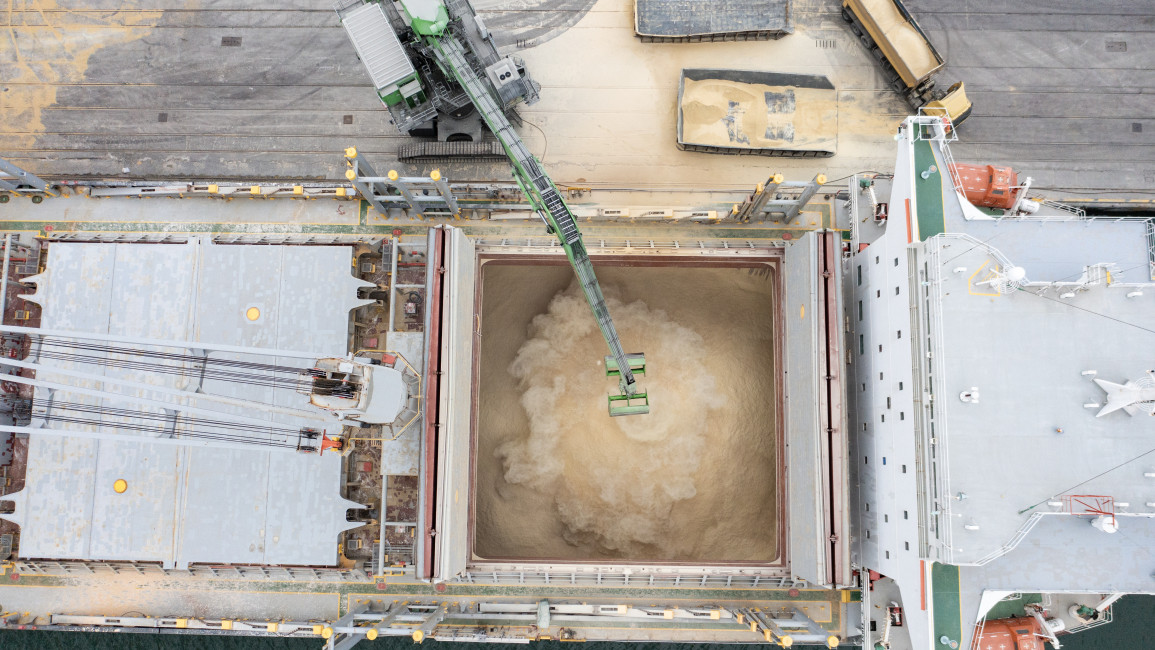EU helping UN, Turkey in bid to extend Black Sea grain deal
The European Commission is helping the United Nations and Turkey try to extend a deal allowing the Black Sea export of Ukraine grain - that could expire on Monday - and is open to "explore all solutions," a European Union spokesperson said on Thursday.
The EU is considering connecting a subsidiary of the Russian Agricultural Bank (Rosselkhozbank) to the international payment network SWIFT to allow for grain and fertiliser transactions, sources familiar with discussions told Reuters on Wednesday.
U.N. Secretary-General Antonio Guterres proposed in a letter to Russian President Vladimir Putin on Tuesday that Moscow allow the Black Sea grain deal to continue for several months to give the EU time to connect a Rosselkhozbank subsidiary to SWIFT, two of those sources familiar with discussions told Reuters.
The European Commission's priority is to ensure that Ukrainian grain can reach the world market and it calls on all parties to extend the Black Sea deal, a European Union spokesperson in Brussels said on Thursday.
"We are assisting the talks led by the U.N. and Turkey as required," the EU spokesperson said. "We are of course open to explore all solutions that contribute to our objective, whilst continuing to ensure that Russia's ability to wage war in Ukraine is hampered as much as possible."
A key demand by Moscow is the reconnection of Rosselkhozbank to SWIFT. It was cut off by the European Union in June 2022 over Russia's invasion of Ukraine in February 2022.
Russian Foreign Ministry spokeswoman Maria Zakharova said last week that Moscow would not be satisfied with the alternative proposal because it would take "many months" to open a subsidiary and another three months to connect it to SWIFT.
The water footprint of refugee displacement increased by nearly 75% globally between 2005–2016, according to new findings of a report https://t.co/9JOvE5t9jr
— The New Arab (@The_NewArab) July 11, 2023
Russia has threatened to ditch the Black Sea grain deal because several demands to dispatch its own grain and fertiliser abroad have not been met. The last ship traveling under the Black Sea agreement is currently loading its cargo at the Ukrainian port of Odesa ahead of the Monday deadline.
Russian Foreign Minister Sergei Lavrov said on Thursday that he had not heard of any new proposals on the Black Sea grain deal, when asked about remarks by Turkish President Tayyip Erdogan who said that Putin had made some suggestions.
The United Nations and Turkey brokered the Black Sea Grain Initiative with Russia and Ukraine in July 2022 to help alleviate a global food crisis worsened by Moscow's invasion and blockade of Ukrainian ports.
To convince Russia to agree to the Black Sea deal, a three-year memorandum of understanding was struck at the same time under which U.N. officials agreed to help Russia get its food and fertiliser exports to foreign markets.
While Russian exports of food and fertiliser are not subject to Western sanctions imposed after the invasion of Ukraine, Moscow says restrictions on payments, logistics and insurance have amounted to a barrier to shipments.
As a workaround to the lack of access to SWIFT, U.N. officials have got U.S. bank JPMorgan Chase & Co JPM.N to start processing some Russian grain export payments with reassurances from the U.S. government.
The United Nations is also working with the African Export-Import Bank (Afreximbank) to create a platform to help process transactions for Russian exports of grain and fertilizer to Africa, the top U.N. trade official told Reuters last month.
Britain has also "worked very closely with the City of London to enable a very complex payment system" for Russian grain, Britain's U.N. Ambassador Barbara Woodward has said.
(Reuters)


![President Pezeshkian has denounced Israel's attacks on Lebanon [Getty]](/sites/default/files/styles/image_684x385/public/2173482924.jpeg?h=a5f2f23a&itok=q3evVtko)



 Follow the Middle East's top stories in English at The New Arab on Google News
Follow the Middle East's top stories in English at The New Arab on Google News


